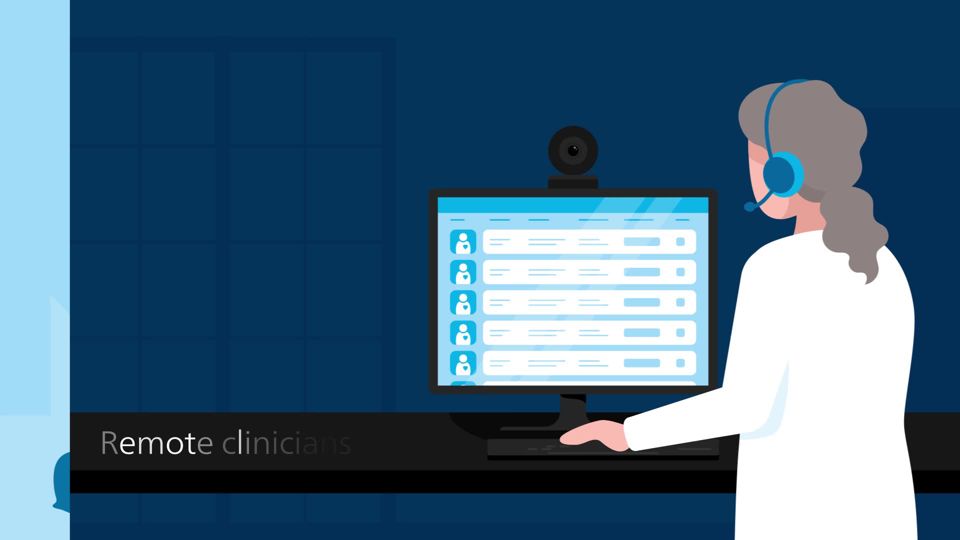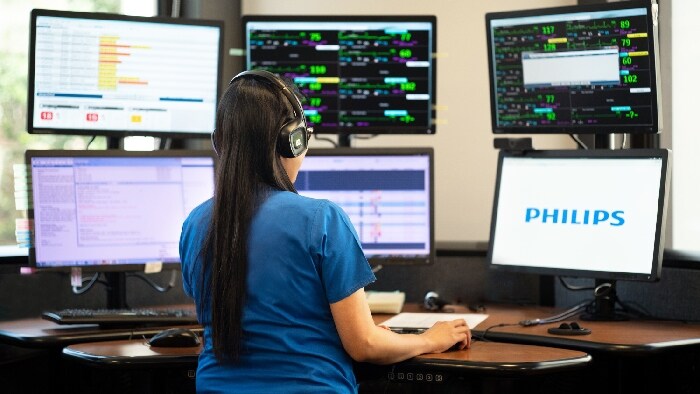Sep 28, 2021
Philips and Teladoc Health announce strategic partnership to deliver comprehensive virtual healthcare solutions across hospitals and health systems in Australia & New Zealand
Sydney, AUSTRALIA – Royal Philips (NYSE: PHG, AEX: PHIA), a global leader in health technology, today announced it has signed a new partnership with Teladoc Health (NYSE: TDOC), a global leader in whole-person virtual care. The partnership is the first of its kind in Australia and New Zealand and will deliver comprehensive virtual healthcare solutions across healthcare facilities, enabling virtual care delivery across entire organisations.
Health networks across Australia and New Zealand are experiencing challenges with overburdened emergency departments, ICU capacity, and elective surgery backlogs, leading to long waiting times for people seeking access to healthcare services. Rising healthcare costs and increased demand for hospital services are accelerating adoption of virtual health programs that can make use of limited specialist resources while improving quality and access to care. The partnership aims to improve patient access to healthcare services, create increased hospital capacity, improve clinician experience and improve patient health outcomes while reducing the overall cost of care. By combining their world leading virtual care capabilities, the two companies will work together to offer hospitals and health systems a scalable end-to-end virtual care journey, allowing organisations to leverage scarce clinical resources with remote patient monitoring across health facilities to support patients and clinicians. New patient insights derived from the virtual care models will ensure practitioners are able to deliver patients improved access to specialist care regardless of time or location.

Phillips and Teladoc Health will be a powerful combination for health systems in Australia and New Zealand. Together we will deliver what hospitals and health systems want: integrated, enterprise solutions that make the full breadth of virtual care available to their physicians and patients,” “Our collaboration will deliver a more seamless, unified experience for clinicians that makes healthcare better, leveraging leading data, analytics and expertise from both companies.”
Darren Reynolds
Managing Director of Teladoc Health for Australia and New Zealand
The evolution of virtual care is unique to each health system. Since the onset of the pandemic, virtual care models have rapidly become a requirement, not an option. Experience shows us that an ecosystem of innovative partners is the best approach to meet organisations where they are in this journey. This partnership with Teladoc strengthens our existing capability through the delivery and performance of best practice programs found at some of the top academic medical institutions and government health systems in the world. We are confident this comprehensive offering will better serve our health systems in Australia and New Zealand.”
Shehaan Fernando
Regional Director of Virtual Care at Philips
Recognised by Gartner’s 2020 Market Guide for Virtual Care Solutions, Philips Virtual Care Centres are a leading example of how virtual care programs can deliver measurable outcomes. In Virtual Care Centres across the world, Philips has leveraged its monitoring, machine learning and advanced analytics programming to turn disparate data into actionable insights that enable clinical decision and improve patient outcomes including: From point-of-care devices to solutions that integrate with existing systems and workflows, Teladoc Health enables hospitals and health systems to extend their organization’s reach and impact across the entire care continuum. Teladoc Health’s virtual care platform and solutions extend the reach of clinicians to more care sites and enhance hospitals’ and health systems’ impact on health and satisfaction outcomes. As of September 2021, the combined Philips and Teladoc Health solutions are being offered to public and private health networks across Australia and New Zealand. [1] Lilly CM, et al. A Multi-center Study of ICU Telemedicine Reengineering of Adult Critical Care. CHEST. 2014; 145(3): 500-7. [2] Lilly CM, et al. Hospital Mortality, Length of Stay and Preventable Complications Among Critically Ill Patients Before and After Tele-ICU Reengineering of Critical Care Processes. JAMA. June 2011; 305(21) 2175-83. [3] Impact of an Intensive Care Unit Telemedicine Program on a Rural Health Care System. Zawada, et al. Postgrad Med J, 2009; 121(3):160-170.
About Royal Philips
Royal Philips (NYSE: PHG, AEX: PHIA) is a leading health technology company focused on improving people's health and well-being and enabling better outcomes across the health continuum – from healthy living and prevention, to diagnosis, treatment and home care. Philips leverages advanced technology and deep clinical and consumer insights to deliver integrated solutions. Headquartered in the Netherlands, the company is a leader in diagnostic imaging, image-guided therapy, patient monitoring and health informatics, as well as in consumer health and home care. Philips generated 2020 sales of EUR 17.3 billion and employs approximately 77,000 employees with sales and services in more than 100 countries. News about Philips can be found at www.philips.com.au/newscentre.
About Teladoc Health
Teladoc Health empowers all people everywhere to live their healthiest lives by transforming the healthcare experience. As the world leader in whole-person virtual care, Teladoc Health uses proprietary health signals and personalized interactions to drive better health outcomes across the full continuum of care, at every stage in a person’s health journey. Ranked best in KLAS for Virtual Care Platforms in 2020, Teladoc Health leverages more than a decade of expertise and data-driven insights to meet the growing virtual care needs of consumers and healthcare professionals. For more information, please visit www.teladochealth.com or follow @TeladocHealth on Twitter.
Topics
Contacts

Sarah Al-Hashimi Corporate Communications Manager Philips, Australia & New Zealand E-mail: sarah.al-hashimi@philips.com
You are about to visit a Philips global content page
Continue


